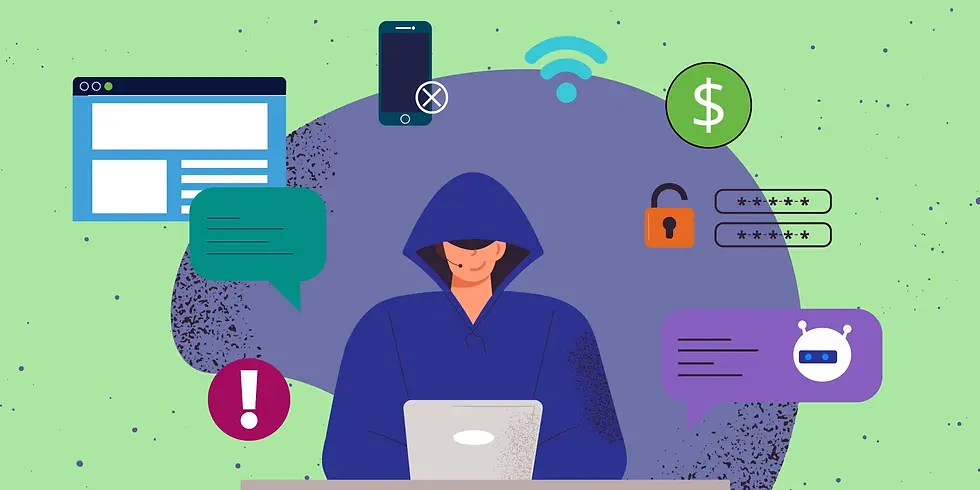Legal aspect of online retailing fraud
- Pratik Dalvi
- Feb 12, 2024
- 2 min read
Fraud in retail and ecommerce refers to the act of using illegal or deceitful practices to obtain goods or services from online retailers, with the intent of not paying for them. This type of fraud can occur at any stage of the transaction process, from the initial order to the final payment. eCommerce fraud is a significant issue for online retailers, as it can result in substantial financial losses and damage to their reputation.
After the fraud many people take legal action and i will like to help you with introducing some related section that will prevent you.
Key Legal Provisions Information Technology Act, 2000
In India, online fraud laws are primarily governed by the Information Technology Act, 2000, along with other relevant laws and regulations. Here are some key legal provisions that pertain to online fraud:
Section 66C - Identity Theft
This section specifically addresses identity theft, which is a common form of online fraud. It criminalizes the use of another person's identity, personal information, or electronic signature with the intent to cause wrongful loss or gain.
Section 66D - Cheating by Personation by Using Computer Resource
Section 66D targets instances where someone cheats by personation, meaning they impersonate another person online to deceive and defraud others. This includes cases of online impersonation and fraudulent activities conducted using electronic means.
Section 66E - Violation of Privacy
While not exclusively focused on fraud, Section 66E addresses the violation of privacy by capturing, publishing, or transmitting the image of a person's private area without consent. This provision can be relevant in cases of sextortion or blackmail.
Bazee.com case
CEO of Bazee.com was arrested in December 2004 because a CD with objectionable material was being sold on the website. The CD was also being sold in the markets in Delhi.
The Mumbai Police and the Delhi Police got into action. The CEO was later released on bail. This opened up the question as to what kind of distinction we draw between Internet Service Provider and Content Provider. The burden rests on the accused that he was the Service Provider and not the Content Provider. It also raises a lot of issues regarding how the police should handle cybercrime cases.
Name Pratik Dalvi
Roll no 487


good to know that law has made amendments to ensure the safety of online buyers
Well articulated Blog!
Well articulated and informative blog
Knowing the legality of the matter provides a different perspective, thanks for the article.
The blog is very well explained